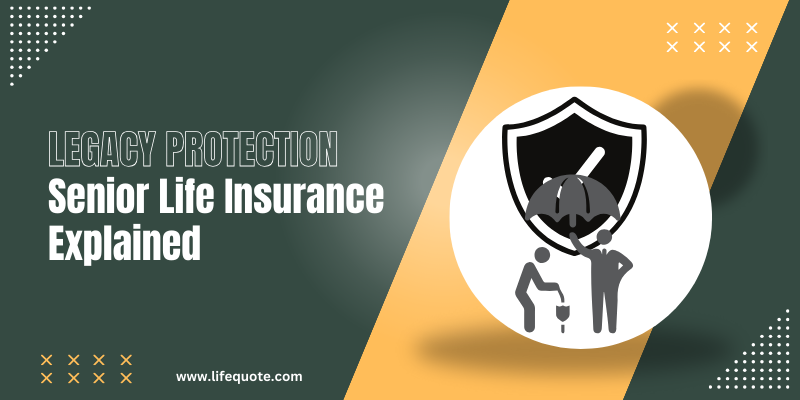- Speak to a licensed sales agent!
- (800) 521-7873
Does Debt Die with You? | Estate Planning and Life Insurance

Americans today are in trouble. With so many struggling with financial issues, debt has become a normal and expected part of our society and economy. While not all debt is bad, and even credit card debt can help people in times of need. However, large amounts of debt can place enormous stress and burdens on individuals and families, especially those with lower incomes.
With the average American having a debt amount of around $53,000 and a combined debt of over $100,000 in the typical American household, it makes sense that up to 18 percent of American adults believe they will never be free of their debt. With this fear also comes the concern that other family members might have to face the situation of paying the debts that remain after their death.
Fortunately, these worries are often misplaced. In many cases, there won’t be any need for others to pay off your debts. While there are some ways that debt must be handled in the event of the death of the debt holder, there are certain guarantees for those who take on debt after you pass, as well as who can touch the money you leave behind in specific funds such as life insurance and retirement. If you’re in debt and thinking about how this will affect your future and the future of your loved ones, this post is for you.
What’s the Deal with Debt?
From politicians aiming to manage our national debt to the countless students that find themselves under the weight of student loans, the topic of debt seems to be inescapable in the U.S.
This severity of this situation can be seen in a 2015 study by Pew Charitable Trusts, which found that 8 out of every 10 Americans have some form of debt. Additionally, while there are many older people that continue to pay off their debt through retirement, the younger generations have a greater percentage of people that have taken on debt.
The kind of debt people can have also tends to vary. For example, home loans and mortgages make up the highest amount of debt, while the rest is mostly made up of auto, credit card, and student loan debts – all of which are valued beyond a trillion dollars here in the U.S. Further statistics reveal that those with higher education and degrees were found to generally have higher amounts of debt.
However, this is not always an issue, as those with more education often have higher salaries, which can reduce their debt to a more manageable percentage of their salary. With this being our current situation, it’s important to take a look at how and why we have accrued debt in the first place as well as what we can do to move forward.
How Did We End Up Like This?
Going into debt can certainly be the result of hardship or difficulties in financial planning. However, these are not the only reasons why people choose to take on debt. There is what is known as good debt and bad debt, the former being debt used for long-term investments that will pay off, such as certain student loans or small business loans, while the latter usually encompasses other categories such as credit card and auto debt. Essentially, if the debt will help increase your net worth in the long run, then it’s considered good debt. If, on the other hand, it does not contribute to your financial growth, it’s bad debt.
While these distinctions are important, for plenty of Americans, the presence of any kind of debt has had an impact on how they choose to live their lives. This societal change might also be the result of changing generational attitudes towards debt and finances, as millennials are the most likely to be in debt and report difficulties in financial planning due to that debt.
With more people getting older and becoming concerned about their financial future, pertinent questions are being raised about how to effectively deal with debt, not only for themselves in the present, but also with consideration for their family in the future.
Who Is Responsible After You Die?
Upon death, a person’s debt doesn’t always just vanish like they might hope. Instead, it becomes part of their estate and assets, which is the compilation of everything they own. The estate is typically handled by an executor who can assist in paying off the standing debt by means of the estate, not from the pockets of the family members left behind.
In some cases, paying off more extreme debts might be accomplished by selling off the remaining assets. In the case of home mortgages and auto payments, if the debts cannot be paid in full, the home or vehicle may be repossessed. However, some debts, such as student loans and often credit card loans, are dissolved after death due to being unsecured debt without collateral.
Additionally, the debt does not usually get passed down to family members or beneficiaries except in more unique circumstances. This is often the case for someone who has cosigned a loan with the deceased or is the joint owner of a credit card or account. While cosigning can have numerous financial benefits, you may want to consider if it’s the right choice to cosign with someone that is not as financially wise or stable.
Another situation where taking on the debt of someone who has died can occur if you live in a community property state in which the spouse of the deceased receives the property left behind as well as the debts. If you live in one of these few states, it is good to do research on how you might be affected by these laws should something happen to your partner. Finally, there are some cases and states where children are required to care and foot the bills for their elderly parents that cannot care for themselves. In this case, you may be required to pay off medical bills even after your family member has passed away.
Will the Money I Leave Behind Be Collected?
After death, some people may leave behind retirement funds or life insurance in addition to debt, which they can designate to specific people or family members as beneficiaries. If, however, no beneficiary is named or living at the time of the individual’s death, the death benefit will become part of the estate and be used toward remaining bills and debts. This can also be purposefully done by naming the estate as the beneficiary of the payout.
Nevertheless, this situation can easily be avoided by naming your family members or others as beneficiaries of your life insurance policy, and by being specific about those people and any conditions you would like to implement. This practice will likely be beneficial as you and your executor work to get your affairs and estate in order both before and after your death.
Even in going through this process, there still may be some misunderstandings of the beneficiaries that cause them to worry whether the payout money will be taken from them in order to pay off the debts of the deceased. Although the death benefits that come from life insurance and these other funds can be used to pay off debts if necessary, they are generally well protected from creditors who want to use it towards the debts of the deceased. As long as the family members are named as beneficiaries, there will be little trouble receiving the money for their own needs.
There is also another situation where it could be possible for creditors to get a hold of the funds for your designated beneficiaries, which depends on the state you live in. Life insurance creditor protection laws, which decide whether creditors can have access to your life insurance funds, can vary by state and some only offer limited protection. Because the details in these laws are often minute, it might be beneficial to do some research on the laws that exist in your state and whether or not they would prevent your beneficiaries from receiving the death benefit.
Tax-Free Benefits
Life insurance death benefit payouts are usually tax-free for the beneficiary and are not reported as income. However, there are some scenarios where you might trigger taxable events in regards to your life insurance policy.
When assets, such as your life insurance policy, are left to your estate, then your heirs may be subject to estate taxes when you die, which could take away a significant portion of the payout. While this is only for relatively valuable estates, you nevertheless may find yourself in this position.
This can easily be avoided by naming the heirs as the actual beneficiaries rather than your estate, but if you have already named the estate as beneficiary, you can always transfer ownership to another person. However, keep in mind that you can’t undo a transfer of ownership and the new owner will be responsible for the premiums. You can gift up to $15,000 to a person each year without incurring gift taxes, so the new owner can use that to pay for premiums. Be sure to become well educated on the regulations surrounding transfers of ownership before making any changes.
What Should I Do Before I’m Gone?
While paying off your debts in full might not be a viable option for some before they pass away, there are other ways you can prepare to have your affairs in order and your loved ones taken care of when you are gone. This is where estate planning comes in. From making a will to taking inventory of your assets, this will allow you to organize your affairs in a way so that they will easily be dealt with after you are gone.
For those who have reason to be concerned about their family’s well being in the case of their death, life insurance is also a great safety net and tool to have in your financial tool belt, especially if you have not already considered it. Life insurance ensures that your loved ones will be provided for financially in the future in the case of your death.
As you may be handling debts and other affairs at the same time, there are many life insurance options available for you to choose from and qualify for. Whole life insurance is a reliable long-term policy in which your premiums payments accumulate a cash value that can sometimes be used even before death in situations such as paying off debt. This type is also the most stable as it lasts for your entire life and the cash value does not diminish or reset over time.
For those for whom whole life insurance doesn’t work, term life insurance is another viable option. With term insurance, you purchase a policy for a set period of time, or “term”, in which you will make monthly payments. This method is much more affordable. However, it does come with some drawbacks.
The payout is only accessible upon the death of the policyholder. Also, if the person outlives their policy term, the death benefit is lost and the individual can choose to either take out another policy, convert their term plan into a whole life plan, or continue on without coverage. Whichever policy you choose, taking the time to plan and understand what type of policy you can afford and benefit from the most will help both you and your loved ones in the long run.
No matter the amount of debt you face, it’s important to consider how this will affect your family and how you can continue to provide for them if the worst were to happen. Because life insurance will not be used to cover your debts posthumously, you can be assured that your loved ones’ financial security is guaranteed by purchasing a policy.
Here at LifeQuote, we have a variety of policies available for your consideration and will walk you through the next step of planning for your future with one best suited to your needs. We offer both term and whole life plans with some plans that don’t even require a medical exam. No matter what stage of life you’re in, the time to get coverage is now. Visit us today for a free quote and see what plans you qualify for today.




